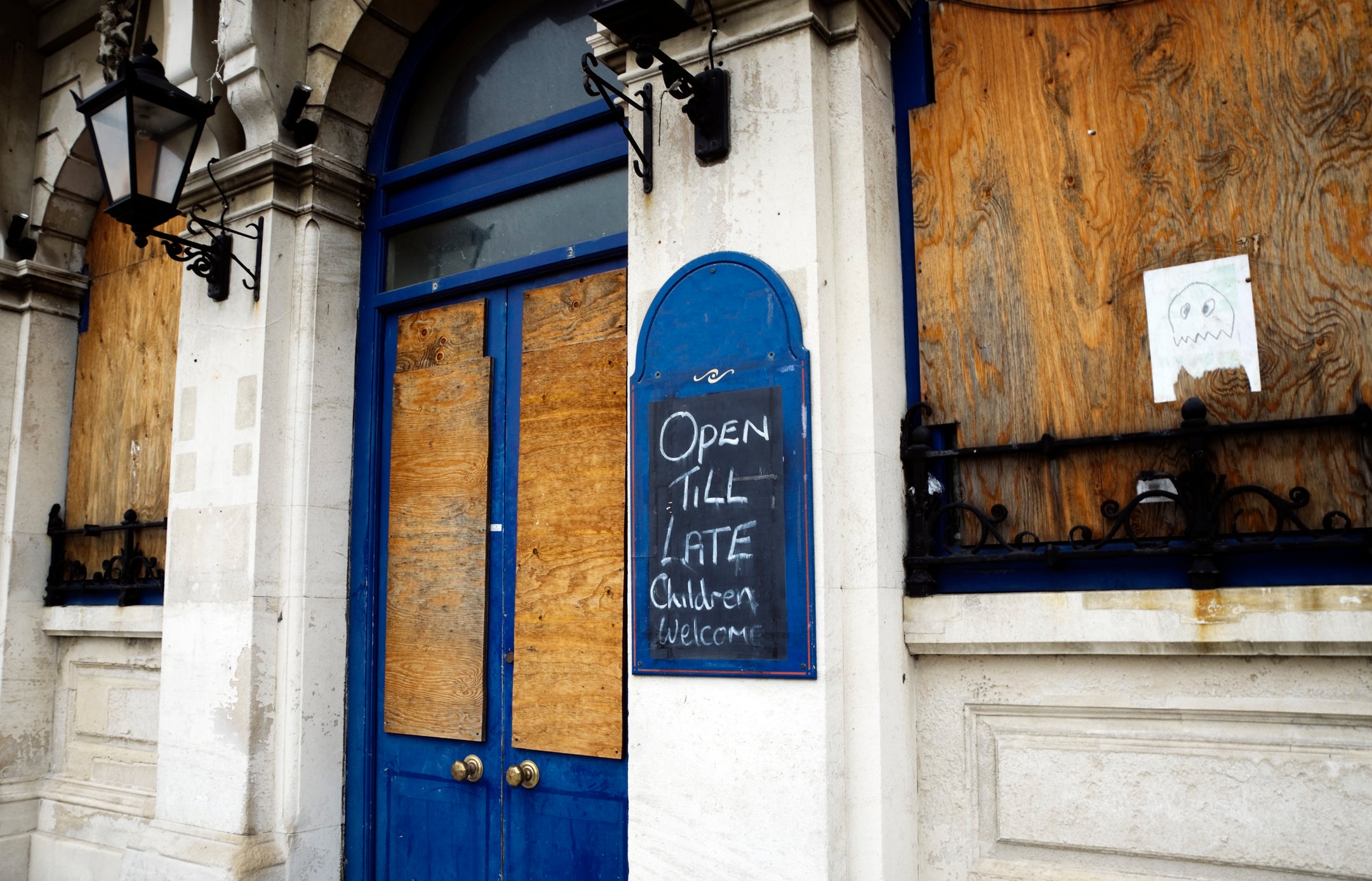Britain lost over 1,000 pubs, restaurants and nightclubs after lockdown lifted, report finds
Nine per cent of nightclubs across Britain closed in this three-month period

Your support helps us to tell the story
From reproductive rights to climate change to Big Tech, The Independent is on the ground when the story is developing. Whether it's investigating the financials of Elon Musk's pro-Trump PAC or producing our latest documentary, 'The A Word', which shines a light on the American women fighting for reproductive rights, we know how important it is to parse out the facts from the messaging.
At such a critical moment in US history, we need reporters on the ground. Your donation allows us to keep sending journalists to speak to both sides of the story.
The Independent is trusted by Americans across the entire political spectrum. And unlike many other quality news outlets, we choose not to lock Americans out of our reporting and analysis with paywalls. We believe quality journalism should be available to everyone, paid for by those who can afford it.
Your support makes all the difference.Britain lost over 1,000 pubs, restaurants and nightclubs in the three months after lockdown fully lifted, according to a new report.
A study published by the market analysis firms CGA and AlixPartners revealed that 16 pubs and restaurants per day - or 980 sites - closed due to the pandemic and what are believed to be Brexit-related complications, between July and September this year.
Nightclubs have also been badly affected, with numbers dropping by 100 to just over 1,000 - a drop of nine per cent in just three months.
Supply chain issues, labour shortages and rising food and drink costs were all cited as reasons for the closures.
The data indicates that small businesses have borne the brunt of closures, with independently-run establishments accounting for nearly three quarters of all closures.
Research published by Caterer.com in August showed that more than 90,000 workers left the UK’s hospitality sector over the previous 12 months due to Brexit and the pandemic, with more Britons entering the field than ever before.
The report concluded that the hospitality industry “remains under severe pressure.”
Kate Nicholls, CEO of UKHospitality tells The Independent: “We’ve known for some time that we are not out of the woods yet – much of the sector remains vulnerable and cannot go under the radar.
“With current labour shortages, disruption to supply and escalating food and utility costs, the forthcoming run in to Christmas will be even more crucial than ever for pubs, bars, restaurants and other venues.”
She added that the government committing to a long-term VAT rate of 12.5 per cent for the hospitality sector “would be a significant, non-costly and easily implemented way of putting a hospitality and tourism recovery on firmer ground, and enabling businesses to grow and invest more in their workforce.”
The Campaign for Real Ale (CAMRA) national chairman Nik Antona tells The Independent: “The impact of the pandemic on our pubs and social clubs is continuing to be felt, even as a wider economic recovery begins.
“Communities nationwide will feel the loss of these venues, and it’s more important than ever that these unique social hubs are supported so they can continue to fight loneliness and social isolation.”
He adds: “It is particularly concerning to see that small, independent pubs have [been] hit hardest by recent closures as these venues are vital to preserving and promoting consumer choice.”
The news comes just one month after a report from hospital technology firm Zonal revealed that no-shows at restaurants and pubs are costing the hospitality sector £17.6bn a year.
According to their data, one in seven customers failed to turn up to a prearranged reservation without informing the venue between April and September.
Their report claims that those aged between 18 and 34 years-old were the “worst offenders” for no-shows, with more than a quarter (28 per cent) not honouring existing bookings, compared with just one per cent of those aged 55-years or above.
Industry group UK Hospitality said no-shows were “deeply damaging” to the sector.
Join our commenting forum
Join thought-provoking conversations, follow other Independent readers and see their replies
Comments